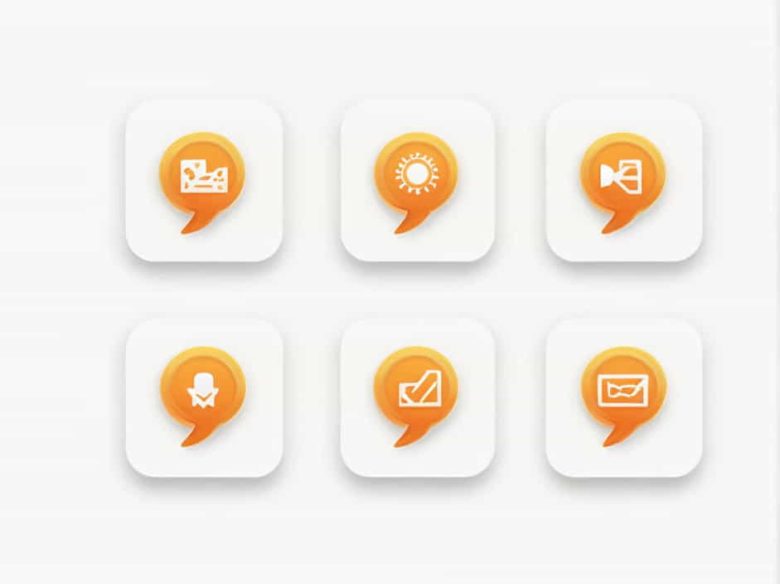In today’s fast-paced world effective communication is more important than ever. One of the key aspects of strong communication is conciseness. Being concise means expressing an idea clearly and in as few words as necessary without losing meaning.
Concise communication is essential in business writing public speaking and everyday conversations. It helps people understand messages quickly reduces misunderstandings and improves efficiency.
This topic explores the meaning of conciseness in communication why it matters and how to improve concise speaking and writing skills.
1. What Is Conciseness in Communication?
A. Definition of Conciseness
Conciseness means delivering a message clearly efficiently and without unnecessary words. It is about getting straight to the point while still conveying the full meaning.
A concise message:
- Uses simple and direct language
- Avoids unnecessary details or repetition
- Focuses on the key message
For example:
- Wordy: “Due to the fact that we are experiencing technical difficulties we are currently unable to process your request at this moment in time.”
- Concise: “We are experiencing technical issues and cannot process your request now.”
B. Conciseness vs. Brevity
Many people confuse conciseness with brevity but they are not the same.
- Conciseness ensures the message is short while maintaining clarity and completeness.
- Brevity simply means using fewer words which can sometimes lead to a loss of meaning.
For example:
- Concise: “The meeting is at 10 AM. Please be on time.”
- Too brief (unclear): “Meeting at 10. Be there.”
Conciseness prioritizes clarity and efficiency over simply shortening the message.
2. Why Is Concise Communication Important?
Concise communication has several benefits especially in business education and daily life.
A. Saves Time
Long-winded explanations waste time. A concise message helps get to the point quickly making conversations and meetings more efficient.
B. Improves Understanding
Short clear messages are easier to process and remember. Too much information can overwhelm the listener or reader.
C. Reduces Miscommunication
Unnecessary words can confuse the audience. A concise message is clear and easy to interpret reducing the risk of misunderstandings.
D. Makes a Stronger Impact
People are more likely to pay attention and remember a message when it is short and to the point.
E. Enhances Professionalism
In the workplace concise emails reports and presentations appear more professional and demonstrate respect for the audience’s time.
3. How to Improve Conciseness in Communication
Improving conciseness requires practice and awareness. Below are practical strategies for being more concise in both writing and speaking.
A. Avoid Redundant Words
Many phrases contain unnecessary repetition. Removing redundant words makes sentences clearer and shorter.
- Wordy: “In my personal opinion I think that this is the best option.”
- Concise: “In my opinion this is the best option.”
B. Eliminate Filler Words
Words like “actually” “basically” “in order to” and “just” often add no real value.
- Wordy: “I just wanted to say that I really appreciate your help.”
- Concise: “I appreciate your help.”
C. Use Active Voice
Active voice makes sentences more direct and powerful.
- Passive: “A decision was made by the team.”
- Active: “The team made a decision.”
D. Focus on Key Information
Identify the main point before speaking or writing. Avoid adding irrelevant details.
- Example: Instead of saying “I went to the store and while I was there I saw a friend. After talking for a while I remembered I needed milk so I bought it” say “I bought milk at the store.”
E. Be Mindful of Sentence Length
Long sentences can be confusing. Break them into shorter clearer sentences.
- Too long: “Our company which has been in business for over 20 years and specializes in software solutions has recently launched an innovative product that we believe will revolutionize the industry.”
- Concise: “Our company with 20 years of experience in software has launched a revolutionary product.”
F. Choose Stronger Words
Using precise and powerful words reduces the need for extra explanation.
- Wordy: “He is a person who always pays attention to small details.”
- Concise: “He is detail-oriented.”
G. Structure Your Message Well
A well-structured message helps deliver key points efficiently.
- Start with the main idea.
- Provide essential details.
- End with a clear action or conclusion.
4. Examples of Concise vs. Wordy Communication
A. In Business Communication
- Wordy: “I am writing to inform you that we have reviewed your request and we are pleased to let you know that it has been approved.”
- Concise: “Your request has been approved.”
B. In Emails
- Wordy: “I wanted to take a moment to follow up on our previous conversation to see if you had any updates regarding the project.”
- Concise: “Any updates on the project?”
C. In Public Speaking
- Wordy: “Today I would like to take some time to talk about something that I believe is very important for all of us to consider moving forward in the future.”
- Concise: “Today let’s discuss an important issue.”
5. Challenges in Being Concise
Despite its benefits achieving conciseness can be difficult. Some common challenges include:
A. Fear of Sounding Too Direct
People sometimes add extra words to sound polite. However conciseness does not mean being rude.
- Polite but concise: “Could you please send the report by Friday?”
B. Lack of Clarity
If a message is too brief it may lose meaning. Ensure the key details are still included.
C. Habit of Using Filler Words
Many people use filler words unconsciously. Being aware of them helps in reducing unnecessary words.
6. How to Practice Concise Communication
To develop conciseness try these exercises:
- Summarize News topics – Read an topic and write a one-sentence summary.
- Use a Word Limit – Challenge yourself to express ideas in 20 words or fewer.
- Edit Your Writing – Review your emails and remove unnecessary words before sending.
- Practice Speaking Briefly – Answer questions in one or two sentences instead of long explanations.
Conciseness in communication is about being clear direct and efficient while preserving meaning. It saves time improves understanding and strengthens professional and personal interactions.
By practicing concise writing and speaking you can become a more effective communicator making your messages clearer and more impactful.



